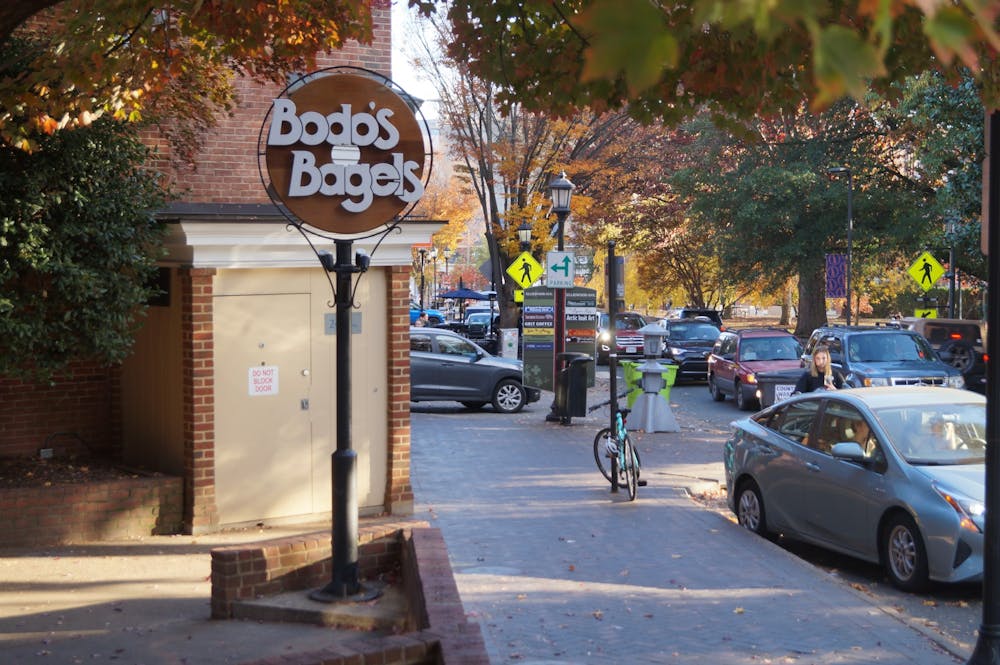This story is developing.
Workers of Bodo’s Bagels on the Corner have reached a majority agreement to unionize Wednesday, per a release from the United Food and Commercial Workers Union. UFCW represents companies such as Kroger and CVS.
Workers at Bodo’s cited various reasons for unionizing, including short staffing, low pay and inadequate sick days.
Bodo’s has struggled previously with staffing shortages, which have resulted in occasional closures at the Corner location — in September, they posted a job listing that advertised a starting pay of $15 an hour along with benefits.
“At the moment, we simply don't have enough employees to provide a work environment that affords a reasonable workload and quality of life for our staff and remain open every day,” the post read.
According to the MIT living wage calculator, a living wage for adults in Charlottesville without children is $18 an hour. Housing costs have also been on the rise, with an approximate one percent rent increase over the past month.
Some members of the Charlottesville community expressed support for the union, including City Councilor Michael Payne, who acknowledged the necessity of unionization for workers across multiple sectors in securing fair pay.
“Not just at this Bodo’s location but throughout our restaurant and service sector … employers like Starbucks, other restaurants, nurses—I think unionization is critical to be able to give them the power to negotiate for better wages and benefits,” Payne said.
A major concern for the workers of the Bodo’s on the Corner is the rising cost of living in Charlottesville, which the current wage rates fail to accommodate. With stagnant wages, rising housing costs due to inflation cause the real wage rate — a measure of the value of a worker’s hourly wage with respect to the cost of living — to continuously sink further below a livable wage.
“Inflation has reduced real wages, and increasingly, people just can’t afford to live in the city,” Payne said.
Having lived in the Charlottesville area for most of his life, Payne said he has never really seen unionization efforts happen like this. Given Virginia’s status as a “Right to Work” state, a policy which dictates no employee can be compelled to join a union as a condition of employment, union density is very low, with just 4.8 percent of workers in Virginia registered as union members as of 2021.
“There aren’t a whole lot of existing unions in Charlottesville and central Virginia or Virginia as a whole … so I think this is a really new wave,” Payne said.
Per the UFCW release, workers presented union authorization cards, which serve as pieces of evidence for the voluntary recognition of the union by Bodos’ management. If management refuses to voluntarily recognize the union, the employees have filed for election with the National Labor Relations Board, who will conduct an election by the federal labor department. The election will determine if the group can unionize.
“My guess is that [the Bodo’s unionization effort] will head to an election with the NLRB and I think they could be successful for sure,” Payne said. “I hope that it could help maybe plant an idea in other workers’ minds…we’ve got a large service sector that maybe workers with other employers will pursue unionization.”







